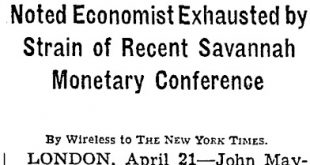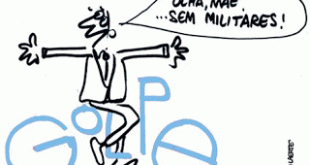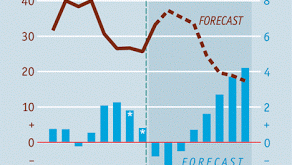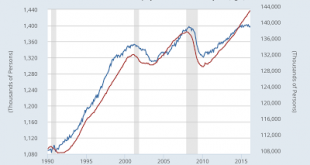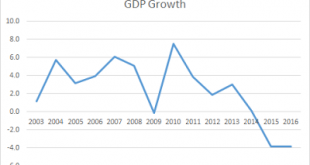[embedded content] More on the GOP failure in Kansas. Rick Smith Show podcast here
Read More »70 years ago
Keynes (1883-1946) NYTimes Obituary here
Read More »Tom Palley on Inequality and Growth
New paper published by PERI. From the abstract: This paper examines the relationship between inequality and growth in the neo-Kaleckian and Cambridge growth models. The paper explores the channels whereby functional and personal income distribution impact growth. The growth – inequality relationship can be negative or positive, depending on the economy’s characteristics. Contrary to widespread claims, inequality per se does not impact growth through macroeconomic channels. Instead, both...
Read More »Some thoughts on the impeachment and the right wing turn in Brazil
Riding the coup bike without the military Brazilian President Dilma Rousseff has been impeached. The vice-president, Michel Temer, will assume the presidency temporarily while she is judged by the Senate. While the final outcome is still uncertain, it is very unlikely that she will return to office. This closes the long cycle of the left in Brazil, which started with the election of Luiz Inácio Lula da Silva to the presidency in 2002, and that led to the election and re-election of the...
Read More »Moody’s upgrades Argentina credit rating status
Mainly because of their "expectation that Argentina will settle holdout creditor claims which will result in a lifting of court injunctions and clear the way for Argentina to access international capital markets." Fair enough, access to capital markets would lift the balance of payments constraint, even if the agreement is a complete surrender to the Vultures demands. But the most interesting argument for the improvement in the credit rating is that it results from "economic policy...
Read More »What’s the matter with Kansas?
In 2010 Tea Party favorite Sam Brownback was elected governor and he had Republican majorities in both houses of its legislature. The GOP program was put in place. What happened, you ask? The result of the GOP tax cuts is significantly lower employment growth than in the national economy. By the way, lower income tax and higher sales taxes, a very regressive tax policy, has led to a persistent overestimation of revenue, and tax shortfalls that led to spending cuts, which in part...
Read More »New York Times on the Brazilian coup… I mean impeachment
So for the correct view (yes, it was a coup) see Laura Carvalho here. As she says: The impeachment process of President Dilma Rousseff started as a retaliation by the speaker of Brazil’s lower house of Congress, Eduardo Cunha, indicted for taking as much as $40 million in a kickback scheme at the state-owned oil company Petrobras. Cunha, whose name is also tied to the Panama Papers, initiated the impeachment process shortly after a public announcement by government allies that they would...
Read More »Brazilian growth during the Workers’ Party adminstration
Overall from 2003 to 2016 about 2.4%. If the last two years (2016 being an estimate are not counted) it's 3.5%. The collapse does not explain the impeachment (on this more later). It's more the result of the Workers' Party administration already caving and accepting the austerity policies promoted by the opposition.
Read More »Prebisch’s dynamic theory
New paper with Esteban Pérez published in ECLAC Review; for now only the Spanish version is available, but soon there will be an English version (they always released it later).
Read More »Kalecki’s Fable
By Jan Toporowski (Full paper published by ROKE here)Following the death, in 1935, of the Polish military dictator Józef Piłsudski, his regime continued under a group of his military cronies, known as the ‘colonels’, who increasingly modeled their regime on that of Mussolini in Italy. One of the colonels, who was responsible for economic development, wanted to understand the economic principles behind government stabilization. He called in Kalecki's colleague from the Institute for the Study...
Read More » Naked Keynesianism
Naked Keynesianism

